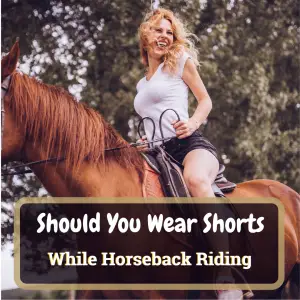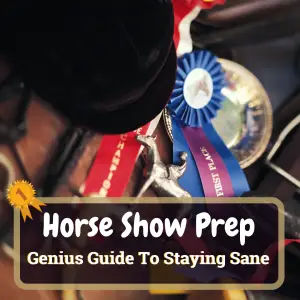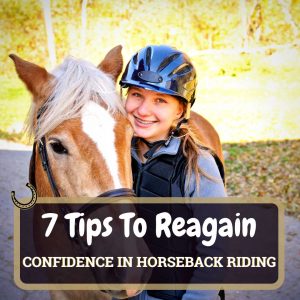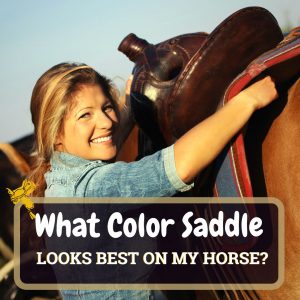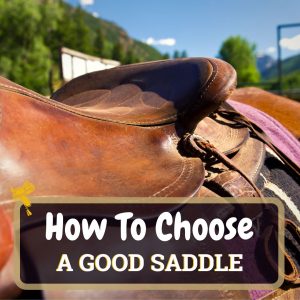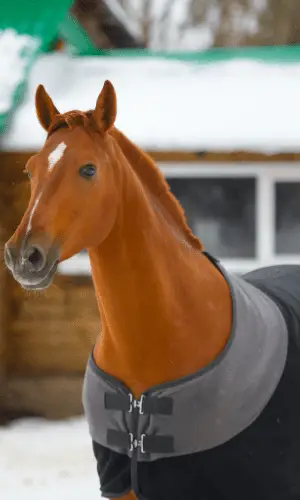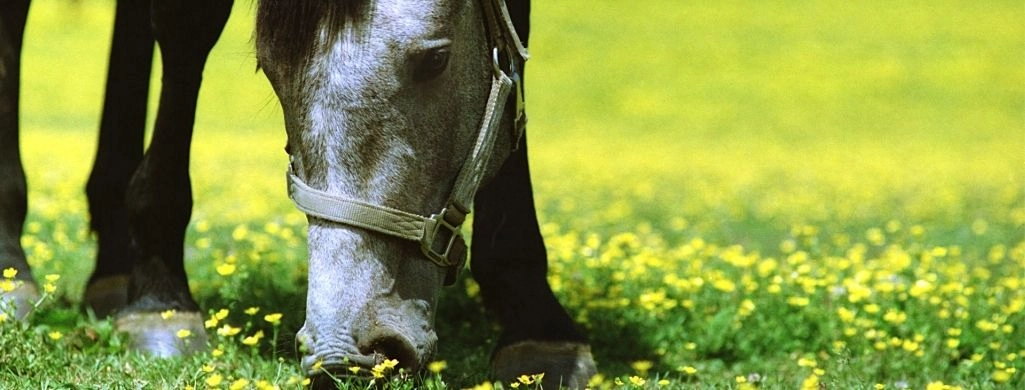
I know the feeling of wanting to “spoil” your horse with the occasional tasty treat, but you might feed your horse something that could make him seriously ill or even die. Food that is safe for humans to eat doesn’t mean it’s safe for horses to eat. We break down what horses should not eat.
What should horses not eat includes chocolate, caffeine, meat, tomatoes, rhubarb, stone fruits, cabbage, broccoli, cauliflower, potatoes, persimmons, dairy, bread, bran mashes, lawn clippings, acorns, compost, garlic, onions, dog food, and cat food. There are also many flowers that are toxic to horses listed below.
Those are most of the foods out there that are bad for a horse’s health.
Don’t get me wrong, your horse isn’t going to die from eating most of these foods occasionally but these are foods that you should keep away from your horse because they are unhealthy for horses, especially over the long term.
Garlic, for example, is found in some feeds, but the quantities are well measured because too much garlic is very bad for a horse’s health.
Large Quantities of Fruit
Feeding your horse an apple or banana occasionally isn’t going to cause any serious health issues. The problem occurs when the horse gets too much fruit during a single occasion like when they find an apple tree or get a bucket of overripe fruit thrown into their feed.
Too much fruit can cause colic and might lead to founder.
Cattle Feed
Drugs like Rumencin are commonly added to cattle feed, this can be deadly for a horse. I would advise buying feed from mills that specialize in making only horse feeds to avoid any of these drugs getting caught up in the feed.
Human Foods That Your Horse Should Not Eat
Toxic Human Food:
What I mean by “toxic” is that these foods are bad for your horses health, if your horse eats a large amount of some of these foods it could die very quickly. It’s also important to note that regular consumption of these human foods even in small doses may result in death due to health complications further down the line.
Remember that a horse naturally eats mostly grass and there is a huge difference between grass and the following human foods.
Caffeine
Coffee, tea, and cola contain the stimulant caffeine which can cause an irregular heart rhythm. Caffeine increases the heart rate and can cause dehydration.
It’s a good idea to keep your horse away from these drinks as they simply don’t need them! What I mean is that horses get all of their required water from grass, so there isn’t an actual need for anything else.
Chocolate
Horses are sensitive to the chemical, Theobromine, in chocolate. Large amounts of cocoa can kill a horse. Chocolate can cause colic, metabolic derangements, seizures, and internal bleeding in horses.
Meat
Horses should not eat meat. They are herbivores. Their digestive systems are not designed to process meat and we don’t know what the long-term side effects could be.
I know of people who feed their horse meat on occasion and it did not harm them as far as anyone knows. The problem is that meat is VERY different from grass and other healthy forage which horses naturally eat. The long-term health defects of letting a horse eat meat are unknown.
Garlic and Onions
These are part of the Allium family. Garlic, onions, scallions, leeks, shallots, and chives, contain the chemical N-propyl disulfide which can destroy red blood cells and result in anemia.
As I mentioned before, garlic is used as a horse supplement but the key is using it in very small doses.
The same goes for onions, scallions, leeks, shallots, and chives. What might be okay in small doses isn’t worth it when there are so many other plants out there which horses can eat instead.
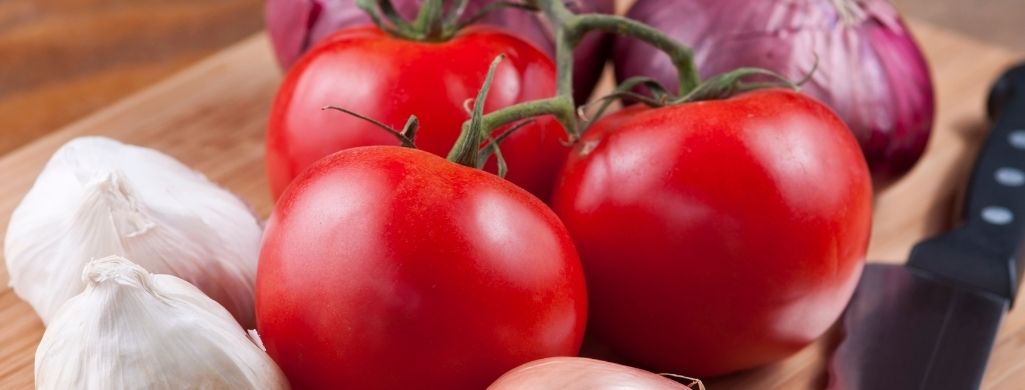
Tomatoes
The tomato is a member of the toxic Solanaceae plant family. The leafy green portions contain atropine, which can cause colic by slowing gut function.
Hyoscyamine is the most abundant alkaloid found in tomatoes. Ingesting it will decrease saliva production and intestinal motility, which can lead to constipation or diarrhea depending on how your horses body processes these chemicals!
Well-known members of this plant family include chili peppers as well any other tomato-related veggies like eggplant and therefore should also be avoided.
Rhubarb
Rhubarb leaves can damage the digestive and urinary systems which can then lead to kidney failure. This is caused by calcium oxalates which are found in the leaves.
Fruit Seeds and Pits (Stone Fruits)
Pitted fruits like cherries, peaches nectarines, and apricots are ok to feed your horse as long as you remove the pit from each piece.
Fruit pits are major choking hazards for horses. Seeing your horse choke on something is very stressful and can turn into something very bad.
Apples and other fruits have pits or seeds which contain cyanide compounds, which can be toxic in large quantities. You should remove the core of an apple before feeding it to your horse but if you forget don’t get overly upset about it as one apple can be broken down by a healthy horse and not cause damage.
Avocado
Avocado is a fruit that horses have been known to eat. However, the toxin in avocados can cause colic, irregular heartbeat, and respiratory distress among other signs of illness when ingested by your horse. You should not feed your horse this type of plant and make sure there’s no access for grazing near avocado plants where horses graze or spend time.
Cabbage, Broccoli & Cauliflower
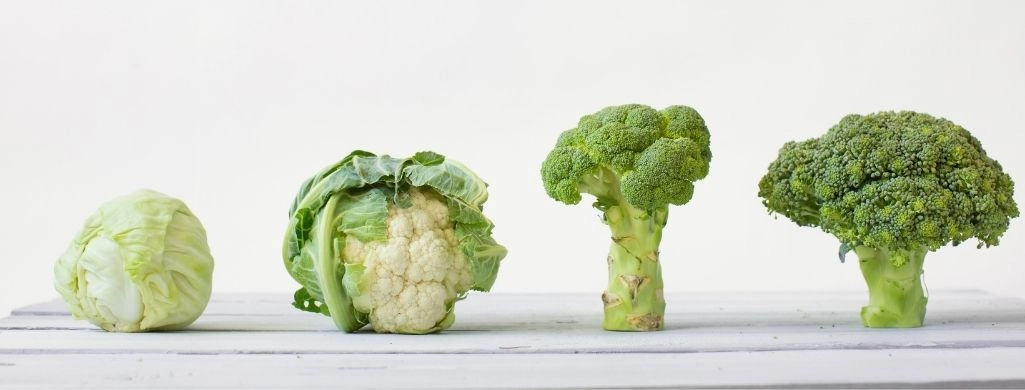
Once again, in small amounts, these foods won’t kill your horse but if they eat just a bit too much they will most likely build up a lot of gas in their digestive systems causing severe pain and possible long-term damage.
There is also a choking hazard because of the leaves and stems which can cause an obstruction in your horses throat.
These three vegetables all belong to a family called Brassica oleracea, otherwise known as cruciferous vegetables! This means they contain chemicals like fructans and goitrogens (plant substances capable of interfering with thyroid gland function). What this does is causes gas and bloating, or can also lead to weight loss.
If your horse is having problems with its digestion these vegetables should be avoided until they are feeling better!
Potatoes
Horses won’t normally care much for the taste of potatoes, they might eat the stems and leaves of the potato plant which is actually the most toxic part of the plant.
If your horse eats green or rotten potatoes, toxicosis can occur. This affects the autonomic nervous system which can lead to death.
Potatoes, like other large whole fruits or vegetables, can become lodged in your horse’s throat and choke them to death. It’s just not worth the risk!
Persimmons
The persimmon is a fruit that horses have been known to eat, but the toxin in them can cause colic.
Do not feed your horse any seeds or fibers from this fruit as it will become stuck inside of their gastrointestinal tract which can lead to severe pain and even death.
Dairy Products
Horses should NOT be fed dairy products because they are lactose intolerant that can cause a number of symptoms to include: digestive upset, diarrhea, and even colic.
They should not be given any sour milk or cream as these are the most common dairy products that horses eat when owners offer them without knowing their harmful effects.
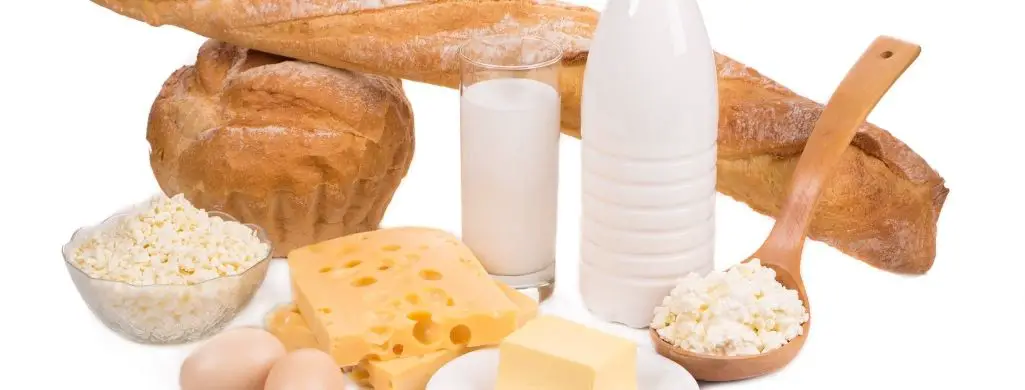
Bread Products
Bread and other baked products can cause blockages in the horse’s digestive system which can lead to colic.
The reason for this is that they are not able to digest the baked product and the carbohydrates in it. Bread dough can even swell up inside of your horse’s stomach, leading to fatal blockages which will cause them severe pain until death takes over.
No matter how much horses might like bread products owners should never give their horses these types of food.
Bran Mashes
Bran contains a high level of phosphorus and very little calcium, which is bad for a horse. Your horse needs twice as much calcium as phosphorus.
Too much bran can cause a mineral imbalance and cause diarrhea.
Plants That Your Horse Should Not Eat
Highly Toxic Plants:
In this instance, my definition of “Highly Toxic” plants are plants that can cause death in a short amount of time. These are plants that can cause death even if they are eaten in small quantities.
Be on the lookout for these plants and make sure your horse doesn’t consume any of them.
Privet
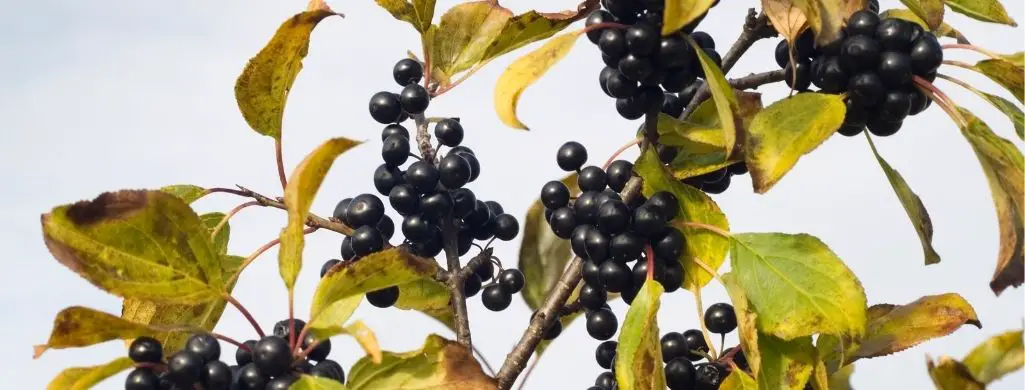
Box privet is the most dangerous for your horse. Keep your pasture clean and clear of this plant.
This is a shrub that can cause muscle weakness, ataxia (general term for lack of coordination), depression, labored breathing due to paralysis of the respiratory muscles, and death when eaten in large quantities by your horse.
Rhododendron
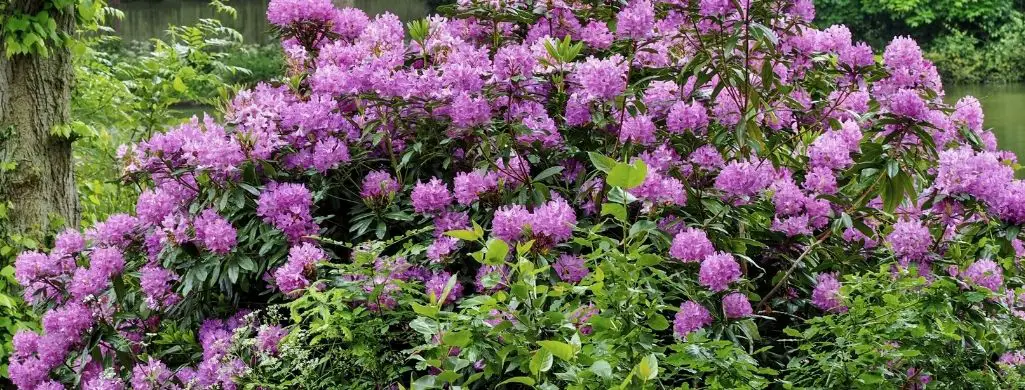
Rhododendron is not something a horse will typically eat unless their pasture doesn’t contain other quality grasses to forage on.
The toxins found in the rhododendron genus can cause death without medical attention. They are known as cardenolides or cardiac glycosides which obstruct the natural rhythm of the heart and result in heart arrhythmias that can lead to the death of your horse.
The highest concentrations of these compounds are found within fruit, flowers, or immature leaves. This toxicity remains even after the plant has dried out.
Ragwort
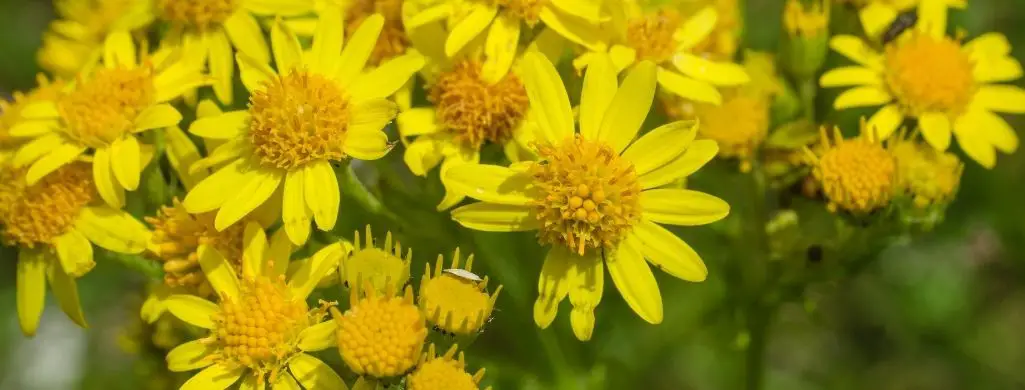
Ragwort has a bitter taste while it’s growing and horses will rarely eat it BUT once it’s dried out a bit the bitterness decreases and horses may eat it when the rest of the grass is lacking.
Ragwort will affect a horse’s liver, pancreas, and gastrointestinal tract if eaten.
Symptoms to watch for include:
- Loss of Appetite & Digestive Issues (such as diarrhea or colic)
- Increased Risk for Laminitis (founder)
- Kidney Failure
- Anemia
If you suspect that your horse has eaten ragwort call a veterinarian immediately to get the right treatment and care for them.
Foxglove
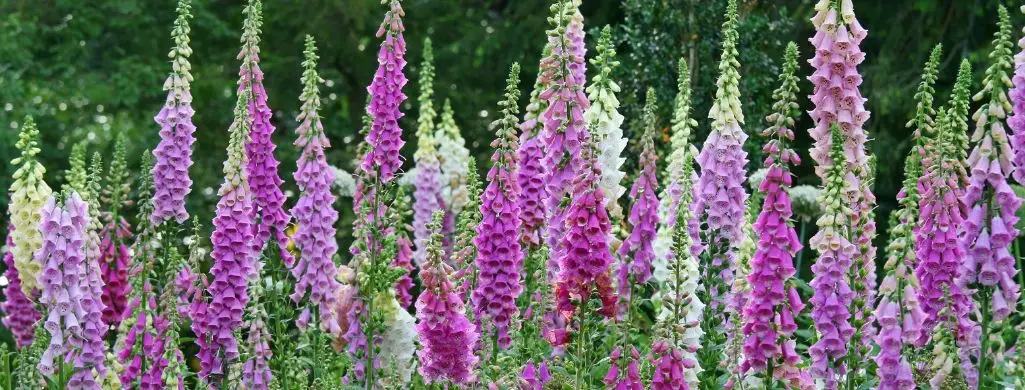
Horses normally won’t eat Foxglove because it’s a flowering plant and therefore bitter tasting. However, if your horse is starving they will eat anything.
Foxglove contains cardiac glycosides that can cause death to horses within 24 hours of ingestion. Symptoms include:
Colic with excessive salivation, abdominal pain, and respiratory distress may lead to cardiovascular collapse
Treatment for Foxglove poisoning includes the use of Digoxin immune FAB (ovine) serum as an antidote along with other supportive care such as the administration of activated charcoal via stomach tube & IV fluids until symptoms subside.
If you suspect your horse has ingested foxglove call a veterinarian immediately! The treatment required could be life-saving but only available from a vet or specialized clinic at this time.
Yew
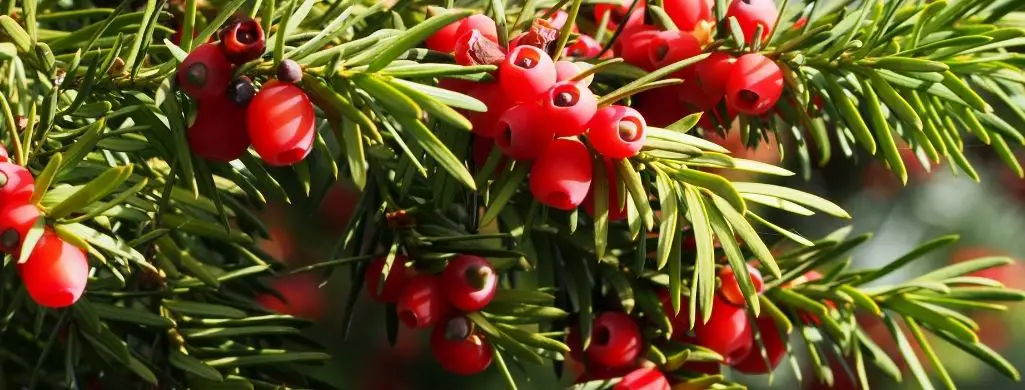
Yew is common in most pastures. The leaves and berries are just as poisonous as the plant itself. Just 500g of this can cause your horse to go into a coma-like sleep state and die. Yew contains the toxin Taxine which causes death in most cases.
Symptoms of Yew poisoning include:
Drooling, loss of appetite followed by vomiting and diarrhea within 12 hours post-ingestion leading to neurologic signs including depression, head pressing, ataxia (lack of coordination), recumbency with respiratory failure & coma before death occurs.
There is not an effective treatment for Yew toxicity so prevention is key! Provide your horse with access to other quality grasses while making sure that none of these make it into their grazing area or pasture where they could be eaten.
Less Toxic Plants:
When referring to these plants as “less toxic” what I mean is that your horse might not die from eating a small amount of them. Even though these are not as toxic as the previous plants mentioned, you should try your best to make sure your horse does not consume these plants as they are not healthy for the horse and can cause death if consumed in large volumes.
Deadly Nightshade
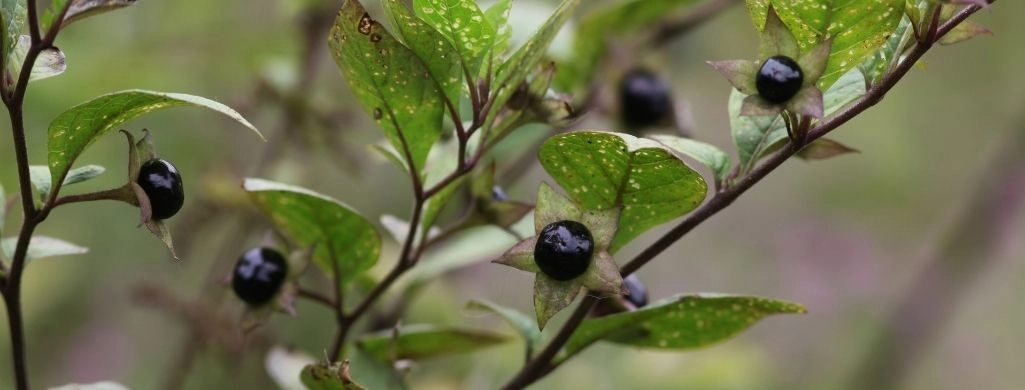
This plant is common in the Eastern and Central US. The leaves, flowers, and unripe fruit can cause the death of your horse if ingested.
Symptoms include:
Dilated pupils & tremors before seizuring or colicking (abdominal pain) occurs
Treatment for Deadly Nightshade toxicity includes the use of activated charcoal via stomach tube along with IV fluids to flush out toxins from the body until symptoms subside. If caught early enough horses survive after supportive care but only a veterinarian will be able to provide appropriate treatment.
Buttercups
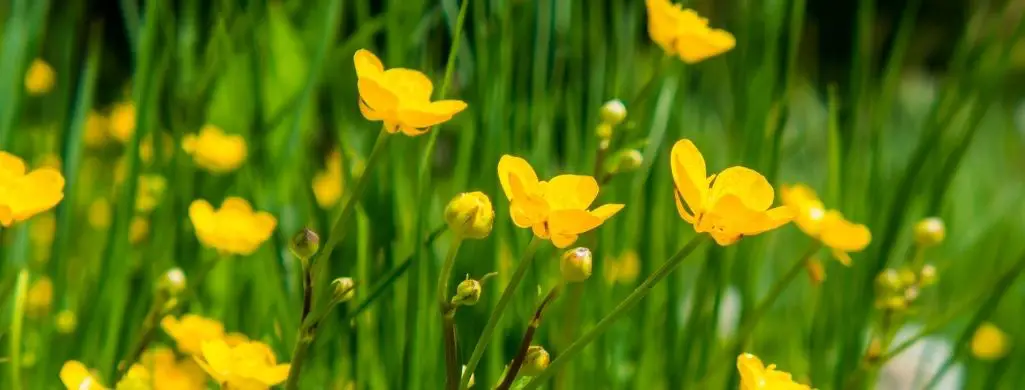
Buttercups are often found as a weed in pastures as well as along the side of roads as they grow very quickly. The whole plant is poisonous to horses. They won’t normally eat it due to the bitter taste but if they are hungry enough or there is very little else in the pasture they may eat it.
Symptoms of buttercup poisoning include:
- Swelling of face
- Drooling
- Loss of appetite
- Colic
- Blistering of the lips
- Mouth lesions
- Convulsions
- Twitching of the skin
- Paralysis
Dangerous toxicity levels are not common seeing horses don’t like the taste of Buttercups and therefore won’t consume enough to cause extreme toxicity.
Once the plant is removed from your horses environment symptoms should start to get better. Should your horse have high levels of toxicity the treatment will vary depending on symptoms which may include medications, therapy or both.
Acorns
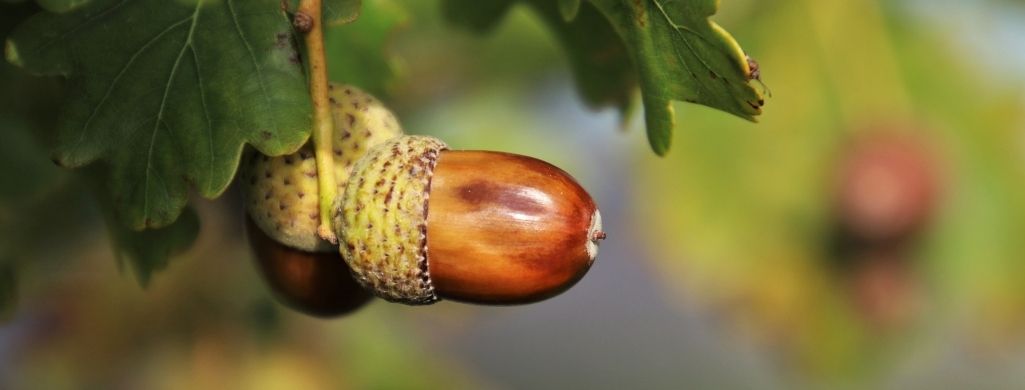
Acorns are loved by many horses but can cause colic, a build-up of gas in the gut) Acorns drop in the Autumn and you should collect them off the ground or maybe even prohibit grazing around those trees until they have all dropped and been collected after Autumn has passed.
The tannins found in acorns are poisonous to horses, causing gastroenteritis and kidney failure.
Acorn poisoning is a serious and often fatal disease. The only treatment that vets can offer to move things through the gut is charcoal feeds, Epsom salts, or liquid paraffin. Fluids and electrolytes are also given to help the horse with possible dehydration.
Sycamore, Maple and Other Acers
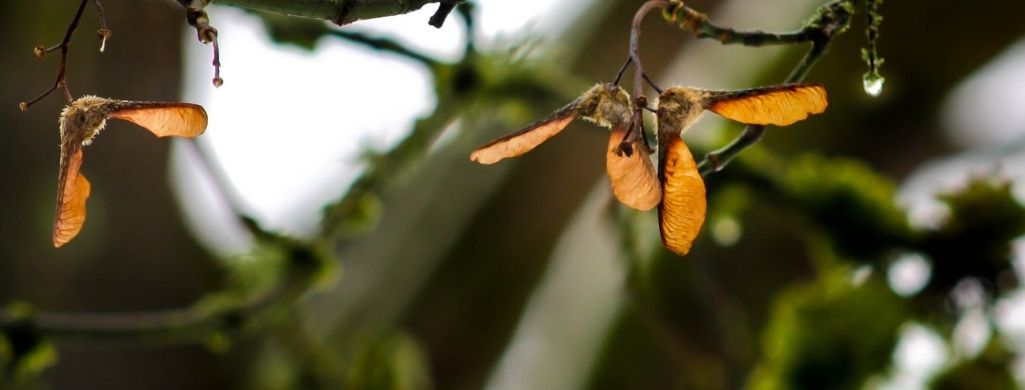
Helicopter seeds in Autumn and saplings in Spring contain hypoglycin-A that causes atypical myopathy in horses. Symptoms include:
- Muscular stiffness
- Reluctance to walk
- Muscle tremors
- Sweating
- High heart rate
- Dark urine
Your horse may appear weak and may have difficulty standing, breathing difficulties, but may still want to eat. If this happens, call your vet immediately.
Lawn Clippings & Compost
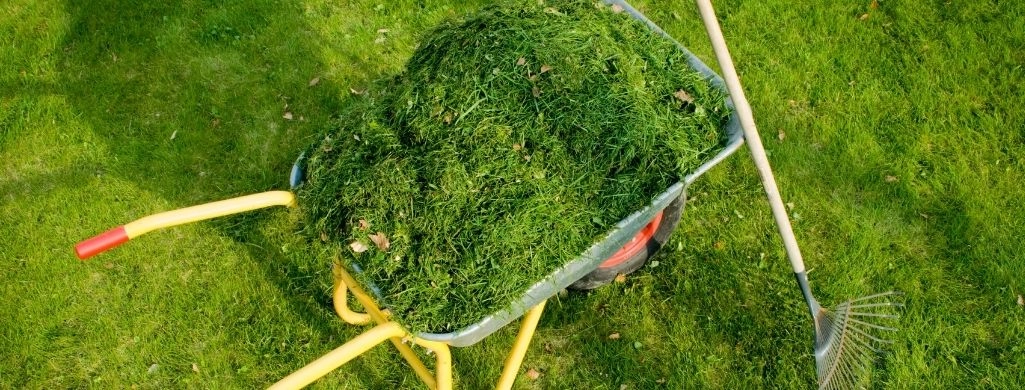
Sticks, twigs, and all sorts of foreign objects can get into lawn clippings. Besides the foreign objects in lawn clippings, green grass in this compact form is way too much for your horse to consume in one go.
Another reason why lawn clippings are a bad idea for horses is there can be so many hazardous plants in the lawn. The plants that I have mentioned above are quite common in most gardens. These toxic plants can cause serious health implications.
Because fresh-cut lawn grass is so wet, it can easily become moldy before your horse eats it, this can cause problems for the lungs.
Normally lawn grass gets treated with all sorts of chemicals to keep the bugs off or help it grow in whichever way. These chemicals can be poisonous to your horse even if the lawn was treated long ago.
Dog and Cat Food
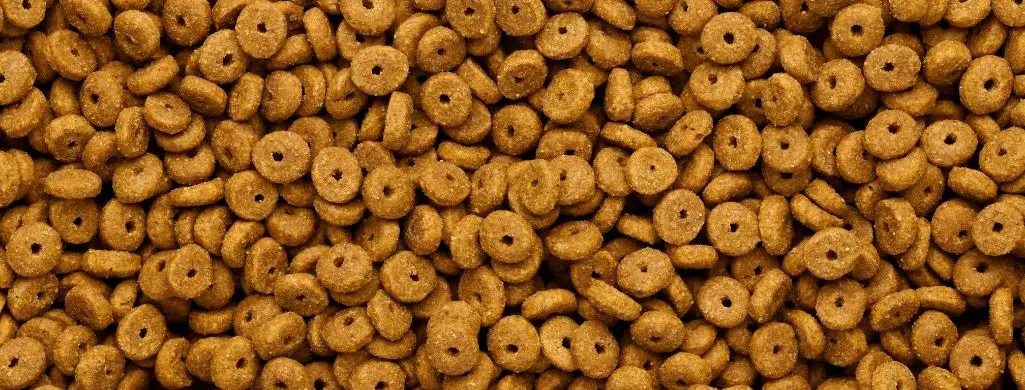
Like most human foods, dog and cat food won’t cause death to your horse in a short amount of time. The problem with dog and cat food is that it contains meat products that have no health benefits for horses.
A horse can also easily eat too much of this type of food which can cause colic. This food swells up when the horse drinks water and can cause some serious digestive problems.
What Can Horses Eat For Treats?
Ok, so even most of the fruit and vegetables listed at the top of this article can be fed to your horse as a treat but only a bite or two. For example, one cabbage leaf won’t have any negative health defects for your horse. Rather stick to the below treats though instead of the above.
You must always make sure to treat your horse with small pieces of fruit or veg, excluding the seeds or pits. If the pieces of treats are too big, your horse can choke.
Having said this, the safer treats you can feed your horse still within moderation (only a bite or two) are the following:
- Banana
- Squash
- Carrot
- Celery
- Mango
- Pear
- Grape
- Lettuce
- Orange
- Plum
- Pumpkin
- Watermelon
Don’t treat your horse every day or even every time you see them unless you only see them maybe once a week. Even if it’s once a week, make sure the horse doesn’t expect the treat from you every time they see you.
Treating your horse too much can also cause them to get cheeky and maybe even start biting. Feeding your horse too many treats will also cause an imbalanced diet.
Wrapping It Up
What are some things horses should not eat? What are the consequences of eating these things? What is a safe alternative for treats that can be fed to horses without negative health implications? What effect do too many treats have on your horse’s behavior, diet, and overall well-being? I hope this article has helped you understand what types of food your horse should avoid as well as how to provide them with good quality alternatives in moderation. We all want our pets to live long, happy lives so it’s important we feed them responsibly!

